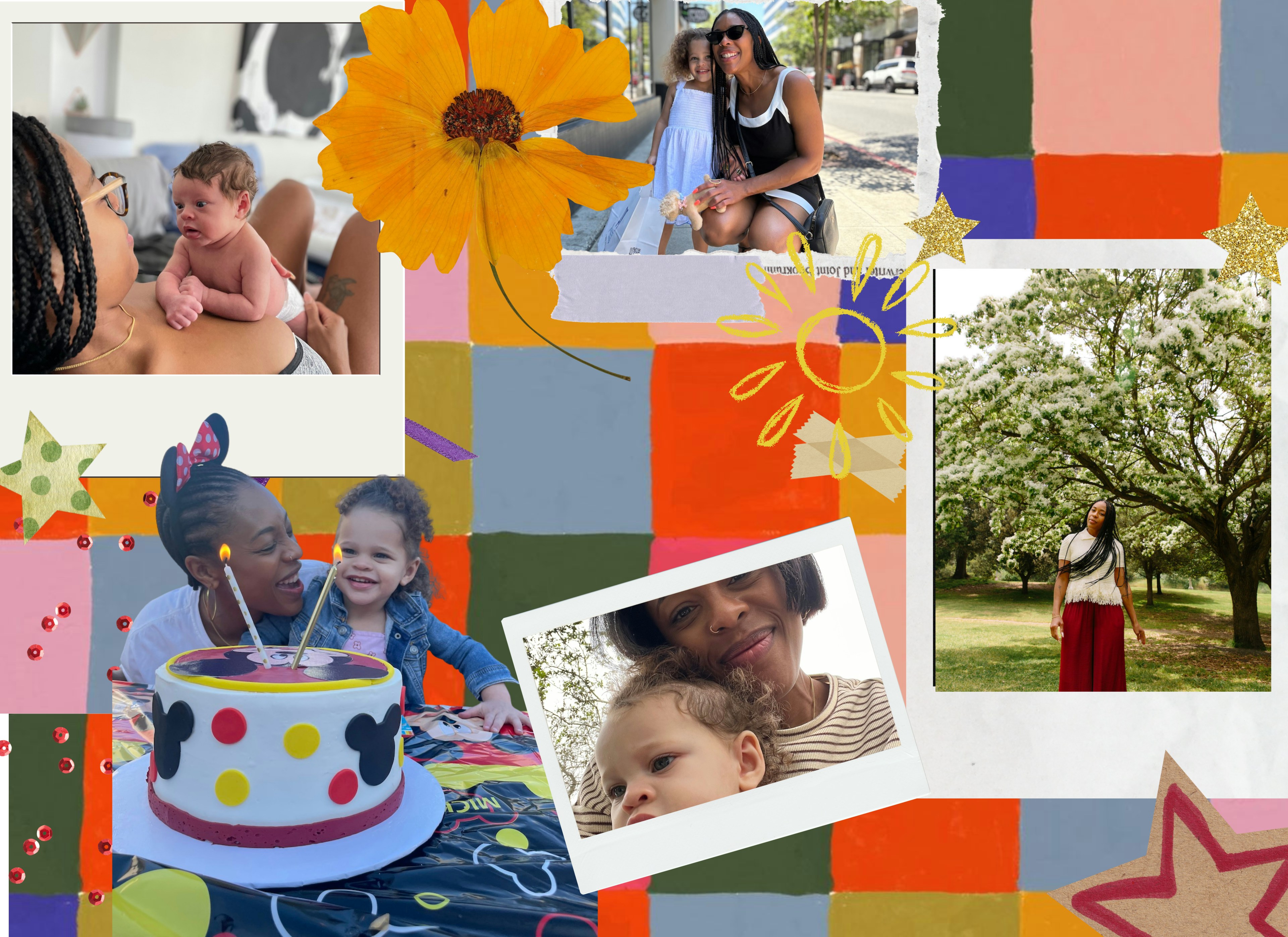
Is She Your Daughter?
Words by Shanetta McDonald
As a new mom, leaving the house produces anxiety. You’re cramming diapers, wipes, and toys into a diaper bag—not to mention binkies in pockets—while praying your baby won’t throw a fit, vomit, or make a calamitously messy poop. It’s not unlike preparing for a flight: Plans will be thwarted, something can or will go wrong.
What I didn’t plan for, though, were unprovoked questions that hurt more than any public tantrum ever could.
“She’s so pretty. Is she yours?”
The words were spoken casually, but they cut like a thousand knives. My daughter and I were in a checkout line at an off-price retailer, minding our business, when the comment was first lurched at me. My baby girl was tucked into her stroller, blissfully staring up at the fluorescent lights, while the woman in front of us spun around to coo at her, and then, oh so casually, questioned me.

"Sure, she was many shades lighter than me. Her skin was still settling into its color, while my melanin was already rich and undeniable. But I was pushing the damn stroller in this store. Who else's baby would it be?"

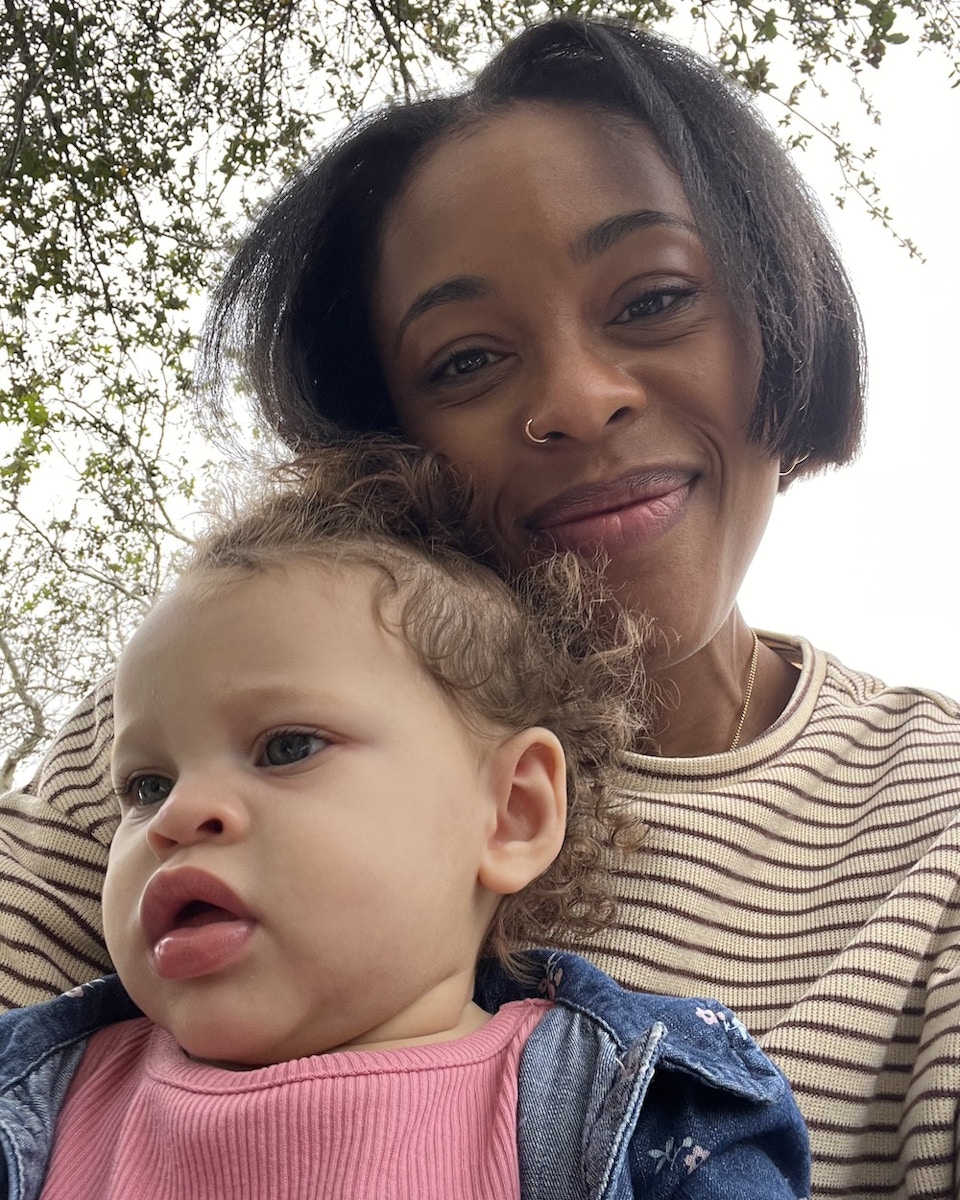
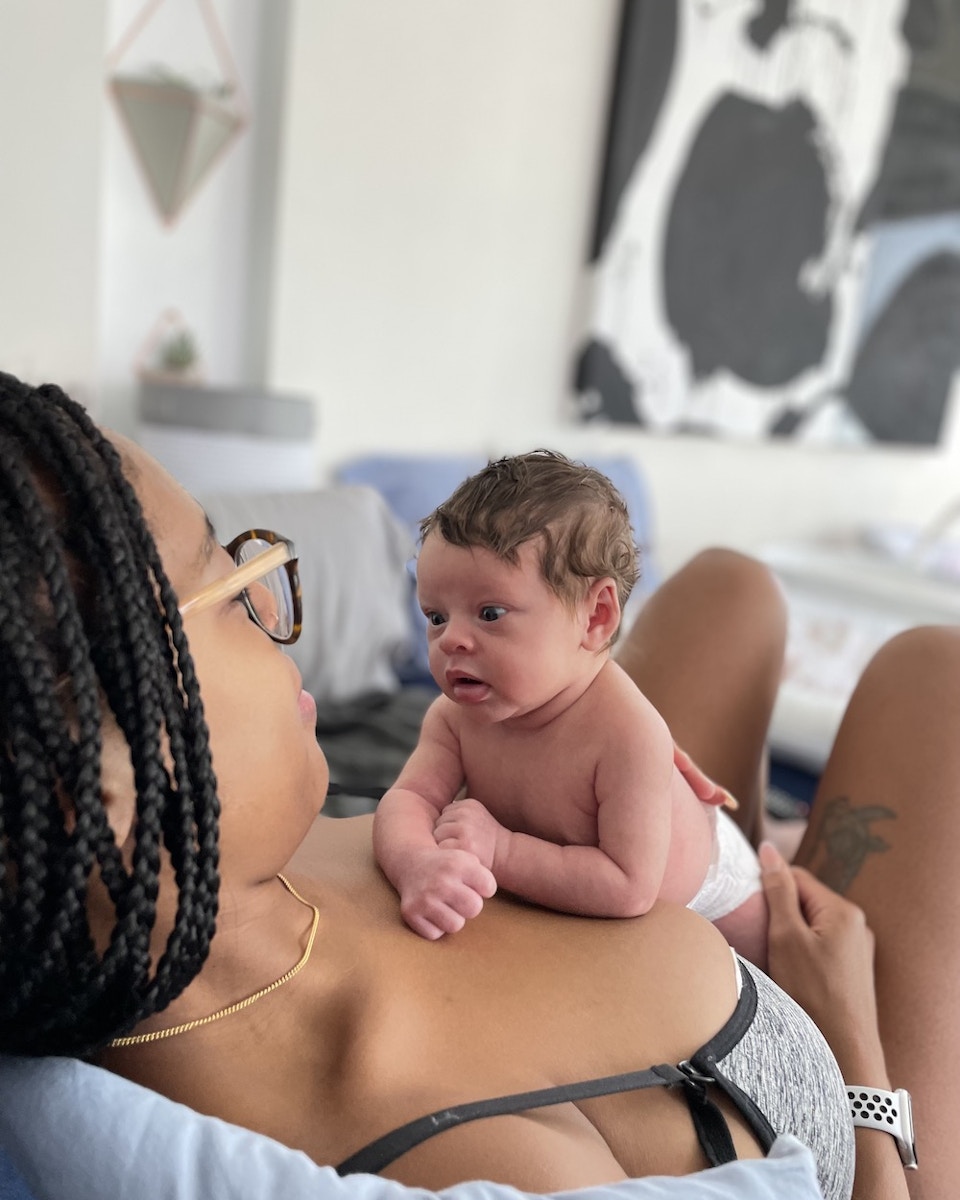
Black women have been raising non-Black children for centuries. During slavery, we fed, raised, and cared for the children of our enslavers. And long after emancipation, Black women continued to serve as nannies, housekeepers, and “the help” (quite literally like the movie The Help.) For these women, always non-Black, always older, it wasn’t unthinkable that I might be caring for a child that wasn’t biologically mine. Their question wasn’t born of malice—it was born of history.
I replayed that woman’s words all day as I rushed home for my daughter’s nap. I rehearsed snappier comebacks in my head, like: How dare you? Please mind your business. But instead, I kept my frustration to myself. Until it happened again. And again. And again.
I’d be lying if I said I never thought about what my daughter would look like. Hell, I thought about it before she was even conceived. Most parents only want a healthy baby, but I wanted a healthy and cute baby. No one admits that.
How she’d look was a toss up. Would her dad’s ginger hair, pale skin, and green eyes rule out my honey-brown complexion, thick curly hair, and almond eyes? There was no telling which traits she’d inherit. What her cuteness would consist of didn’t matter to us; she was ours. But it seemed to matter to the world.

"Black women have been raising non-Black children for centuries. During slavery, we fed, raised, and cared for the children of our enslavers. And long after emancipation, Black women continued to serve as nannies, housekeepers, and “the help." For these women (always non-Black, always older), it wasn’t unthinkable that I might be caring for a child that wasn’t biologically mine. Their question wasn’t born of malice—it was born of history."

Today, my daughter is three and a half. And twice this summer alone, strangers have asked if she’s mine. Eventually, I stopped asking why me and started asking why them. But I knew peace wouldn’t come from understanding strangers’ motives orr from snapping back at them in checkout lines.
I’ve often spiralled, wondering what it meant if my daughter and I didn’t share the same complexion. I ran to a friend who’s biracial and begged her for help. “My daughter is white-presenting, how will she know she’s part Black?” I asked her. My family is scattered across states, while her dad’s side is all around us. How will she know the other half of herself?
My friend looked at me earnestly and said, “She’ll have you. You’ll teach her.”
She was right: My grounding wouldn’t come from strangers, but from me doing the work of raising my daughter in her fullness. By teaching her who she is through books with Black heroines. Through stories of her maternal great-grandmother’s strength. Through celebrating her curls when they spring tighter than her father’s lineage might expect. Through simply, my own presence.
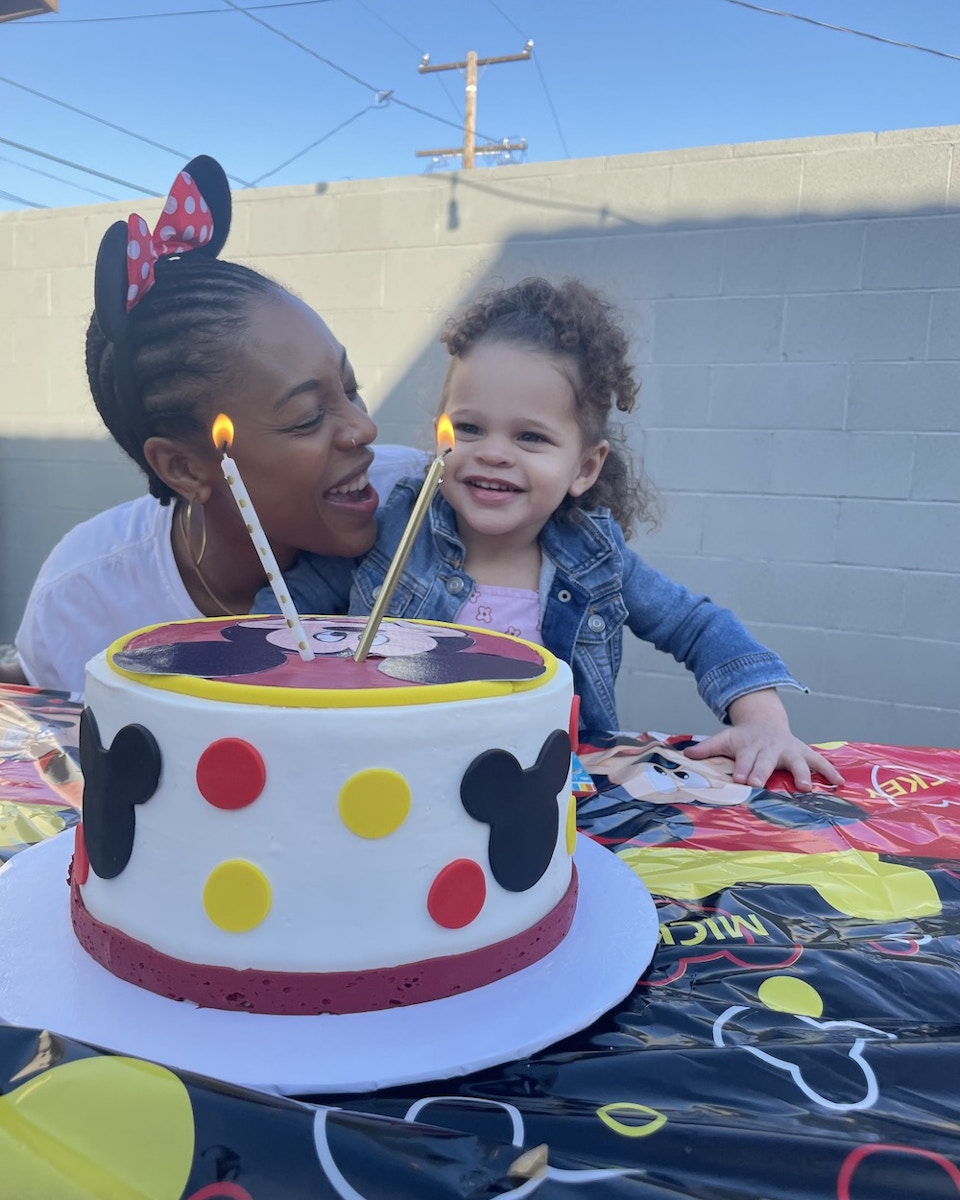
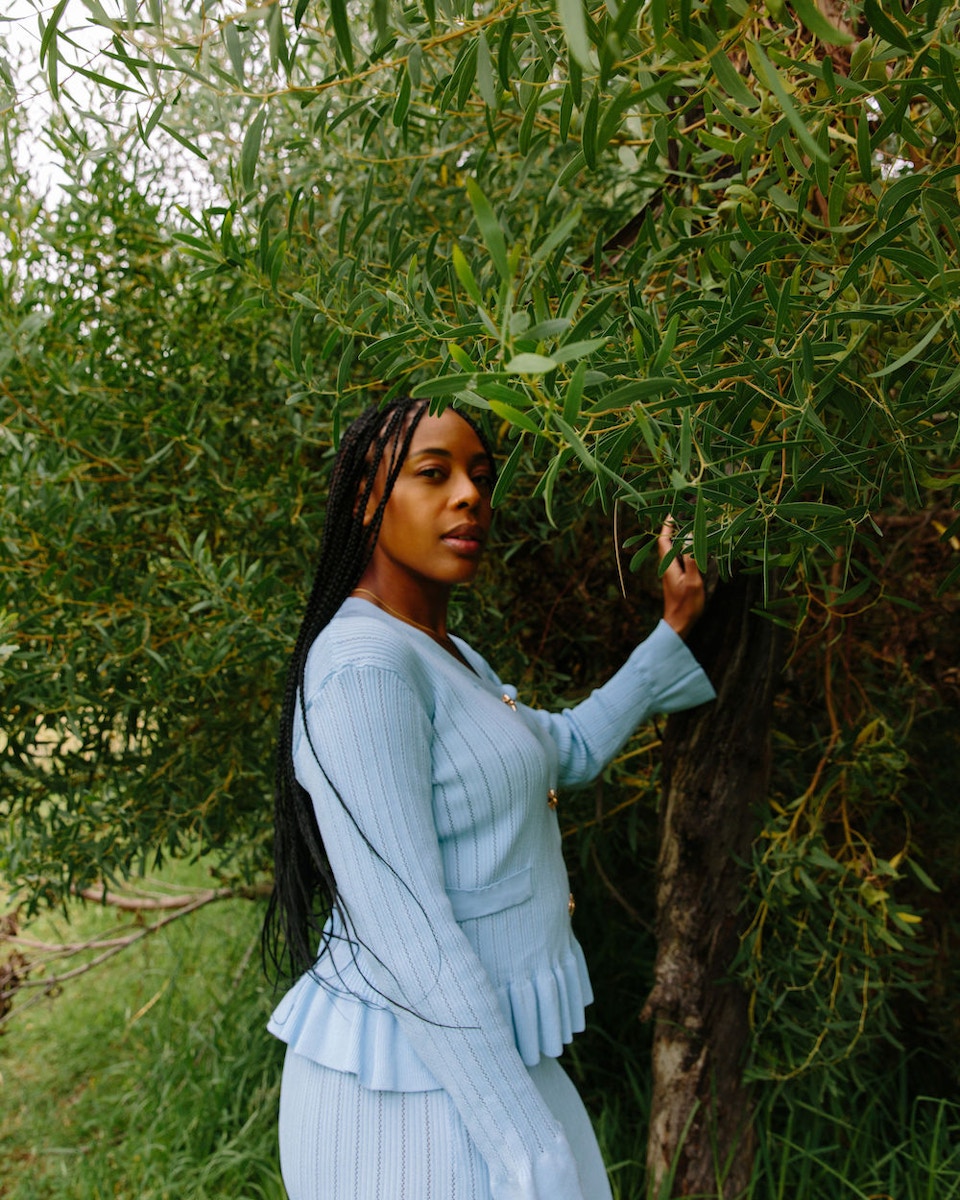
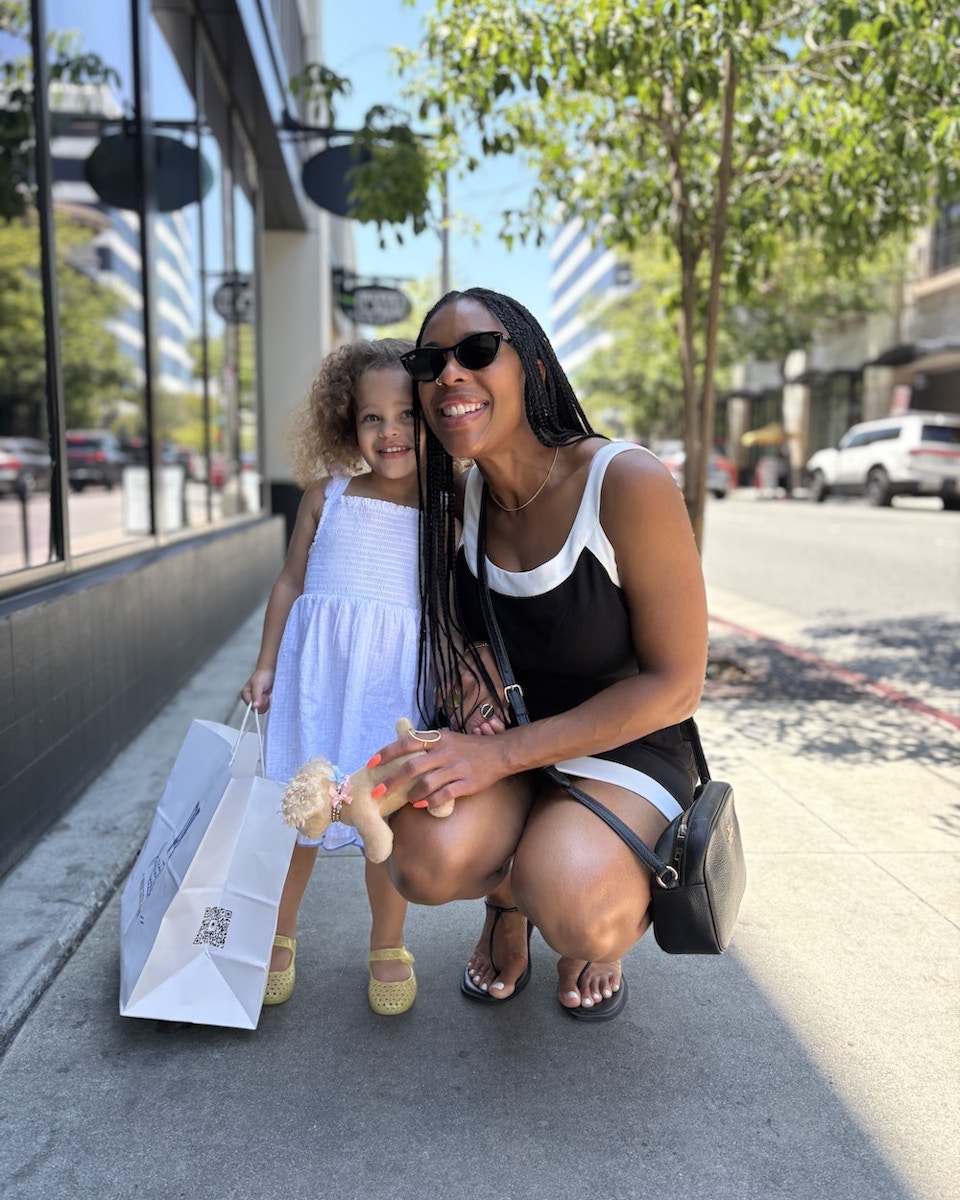

" I live with the paradox of mothering in public. I am both hyper-visible and invisible at once—scrutinized by strangers who question my belonging, yet overlooked in the depth of my role as her mother. That complexity, between being seen too much and not at all, has become part of my regular landscape. "
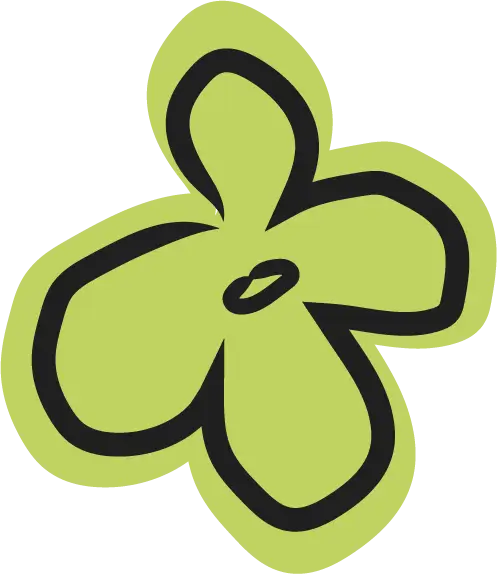
Still, I live with the paradox of mothering in public. With my daughter at my side, I am both hyper-visible and invisible at once—scrutinized by strangers who question my belonging, yet overlooked in the depth of my role as her mother. That complexity, between being seen too much and not at all, has become part of my regular landscape.
But it’s also where I root myself. Because what matters most is not how others perceive us, but how my daughter learns to see herself through me.
And the next time someone asks, “Is she yours?” I’ll say yes. Not to convince them, but to remind my daughter that she’s mine.
Shanetta McDonald is a writer, publicist, and somatic life coach. Her essays have been featured in Allure, InStyle, Essence, Refinery29, and Well+Good. Through her agency and coaching practice, she helps women, BIPOC, and queer leaders share their stories and take up space with confidence.